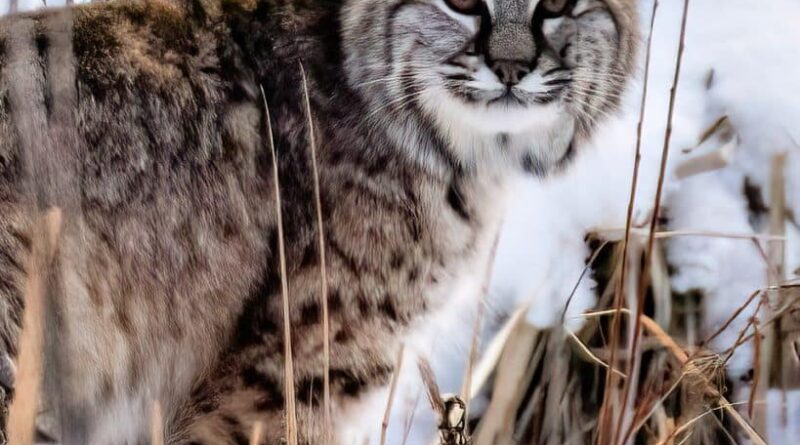The Colorado Parks & Wildlife workers union is criticizing the ballot initiative for the first resolution of its kind
While Colorado Parks & Wildlife is barred from taking action on the ballot measures, the agency’s staff say Proposition 127 — a measure that would ban the hunting of mountain lions, bobcats and lynx — is up for election in November.
Colorado Wildlife Employees Protective Association The board signed the resolution on Oct. 9 which states that wildlife decisions should be left to Colorado Parks & Wildlife scientists. The organization represents about 200 current wildlife department officers, biologists, wildlife specialists, marine workers, administrative assistants as well as education and service workers. In total, Parks & Wildlife has more than 1,000 employees, and its park employees are represented by another union.
“Colorado’s wildlife story is written because our members and those who have come before us have dedicated our operations to the best available research and proven wildlife management strategies,” said Casey Westbrook, president. of the organization and wildlife manager of the state Parks & Wildlife. , in release. “Maintaining management and wildlife management is key to protecting Colorado’s wildlife for future generations.”
The resolution and the union’s release do not directly address Proposition 127, but in an interview with The Vail Daily, Westbrook said the move “started our need to have a resolution to define where we are.”
“We didn’t call that proposal specific because this is a situation that applies more broadly than a single proposal,” he said, adding that it addresses the way in which wildlife issues are produced by them and they fail the existing methods of making laws alone. taken up by interest groups and brought to the polls.
Supporters of Proposition 127 argue that the ballot measure does not take control of cats away from Parks & Wildlife. Instead, they argue that it seeks to end hunting, which they say is an ineffective and unnecessary form of wildlife management as well as an unhealthy, recreational activity.
“Colorado Parks & Wildlife will continue to manage conflict-affected wildlife and healthy ecosystems if Coloradoans vote “yes” to 127 to protect cats from hunting and fur trapping,” said Samantha Miller. , director of the Cats Are not Trophies campaign. answer to the decision. “Prop 127 only ends the hunting of mountain lions with hounds and the trapping of bobcats, both of which are considered recreational by (Parks & Wildlife), and have no regulatory purpose.”
The decision is the first in the membership’s 77-year history, which Westbrook said “speaks to how important this issue is to us.”
Lauren Truitt, a former assistant director of information and education for Parks & Wildlife who serves as the agency’s spokeswoman on the issue, said “there’s a lot of pressure on the agency to keep quiet.” with their management policies as it relates to the purpose of choosing.
The staff resolution states that citizens have “fair and equal opportunities” through the state legislature and the Parks & Wildlife Commission to express their views on how wildlife is managed.
“The challenge with the voting process on something as important as this is (that) the problems get lost in the nature of wildlife management and the work that the agency and staff do,” Truitt said, speaking to Proposition 127. “This vote. This plan will take away some of their authority and their ability to use a controlled hunting system as a strategy.”
In its campaign, Cats Not Trophies argues that science and research show that natural forces – prey and habitat availability – are what drives healthy animals, not hunting. A group of 22 wildlife biologists – including Jane Goodall, professors with the former National Park Service, US Fish and Wildlife Service, and other agency officials – supports Proposition 127. The group wrote a letter. means that hunting is not necessary to control cats.
The decision also supports the North American Model for Wildlife Conservation, developed by sportsmen and conservationists and used by Parks & Wildlife. and all state and federal wildlife agencies. The model has seven employers, including several related to hunting.
Both proponents and opponents of Proposition 127 argue that this precedent supports their position on the measure.
“It’s brought wildlife back from the brink of extinction to (where) we now have wildlife expanding across the United States,” Truitt said. “That’s what (Colorado Parks & Wildlife) creates.” their regulatory policies and anti-investigation policies, and (Proposition 127) is more and more for those employers, which sets a dangerous precedent.”
Richard Reading — the Butterfly Pavilion’s vice president of science and conservation who sits on the Colorado Parks & Wildlife Commission and has expressed his support for the ballot measure — wrote in the article. it says, if you support this conservation approach, “you must vote yes on Proposition 127.”
“The model, widely publicized for its conservation success, clearly states that hunting must involve ‘fair pursuit,'” and that wildlife cannot be harmed, says Reading. ,” says Reading, pointing to the controversy surrounding the illegal hunting of lions and bobcats today.
While the wildlife department cannot come out in favor or oppose ballot measures, it will be necessary to implement the will of the voters – as was the case in 2020, when voters ordered Parks & Wildlife to produce gray wolves again.
“With (Proposition 114), again, you have a public vote, which is as good as a democracy, but workers are under water with the reinstatement of the wolf,” Truitt said. “You’re adding another voting policy, another order to their atmosphere that undermines what they’re really trying to do and destroys their resources. It makes them very thin.”
Ballots were sent out starting Oct. 11. Election Day is 5 Nov.
#Colorado #Parks #Wildlife #workers #union #criticizing #ballot #initiative #resolution #kind
